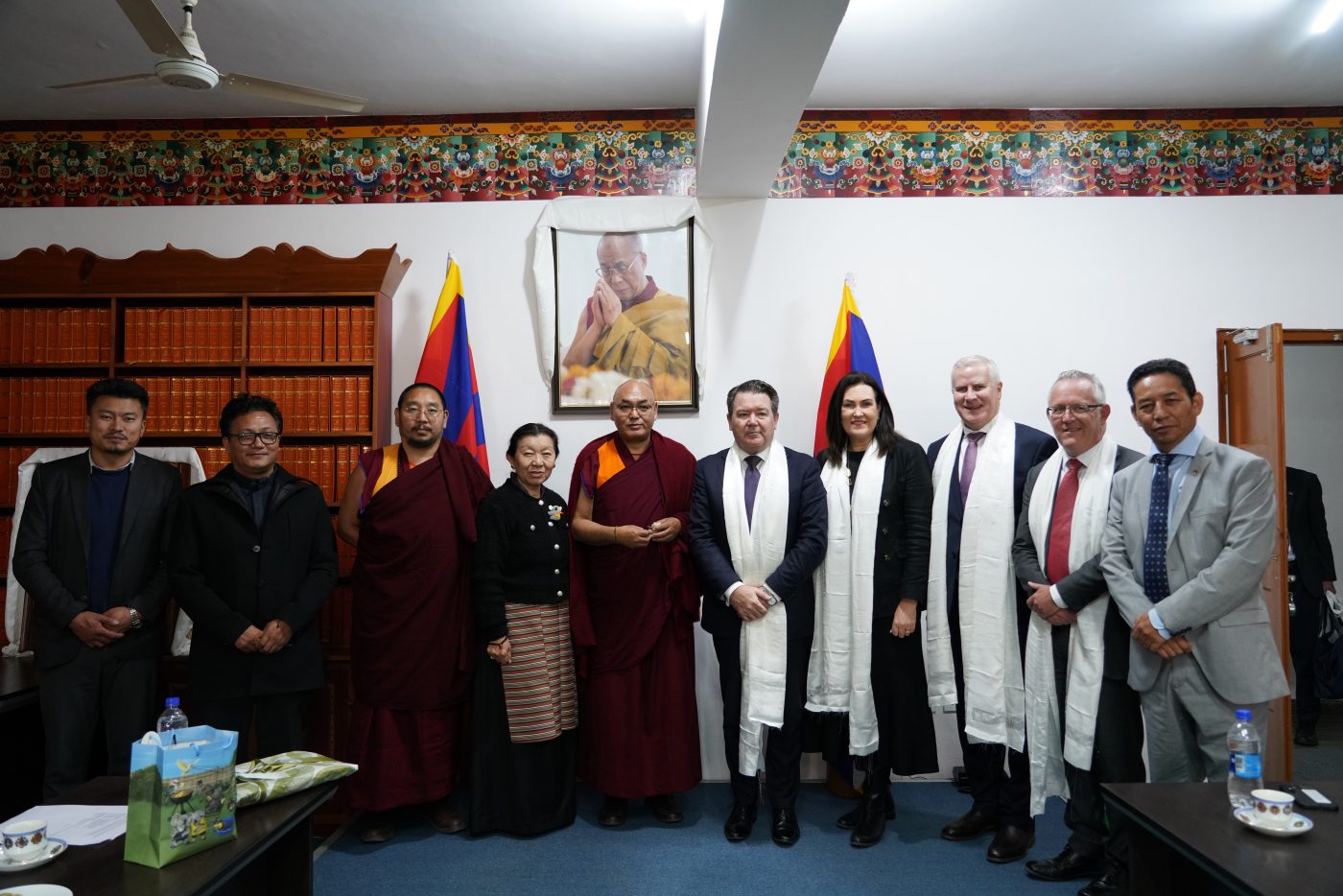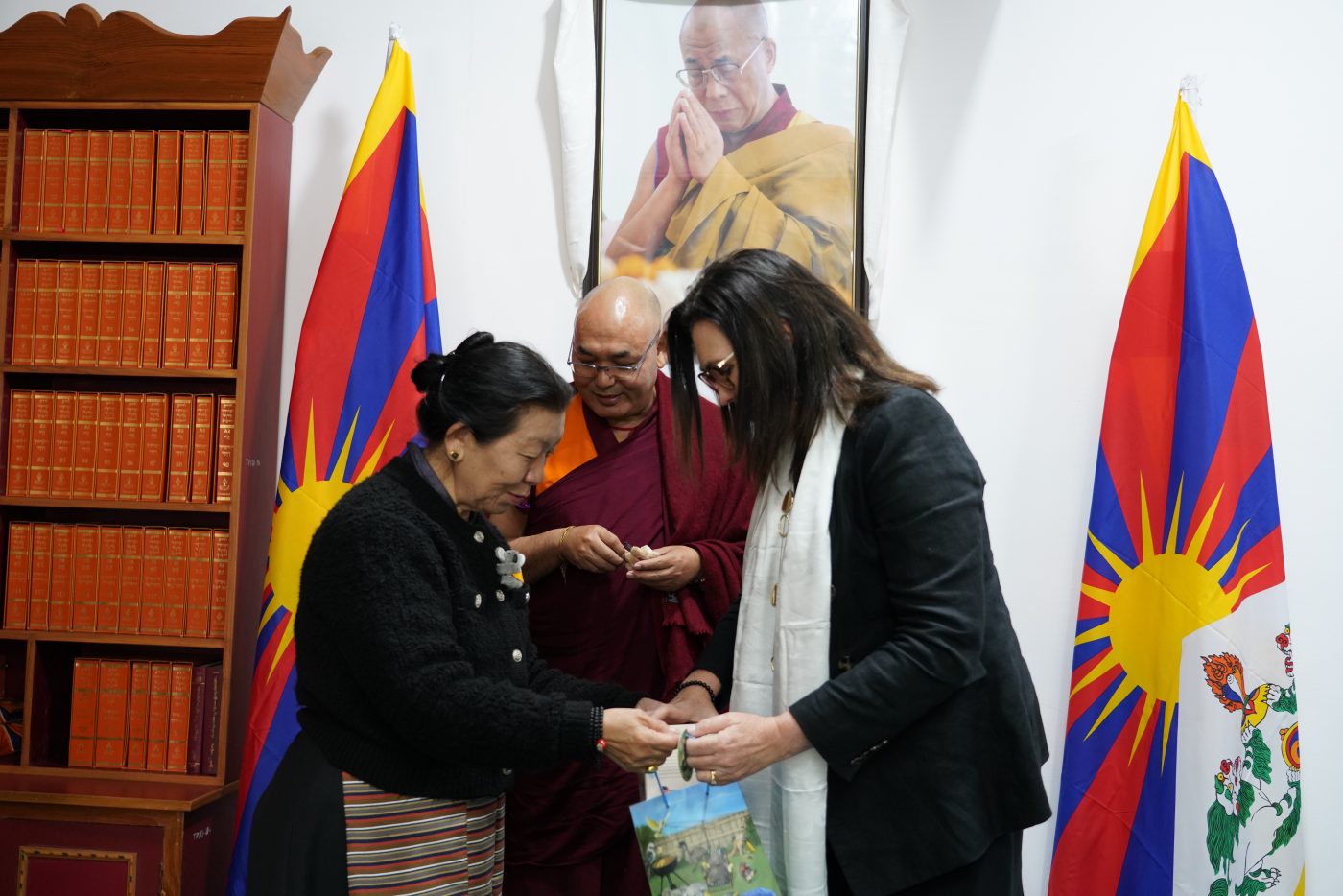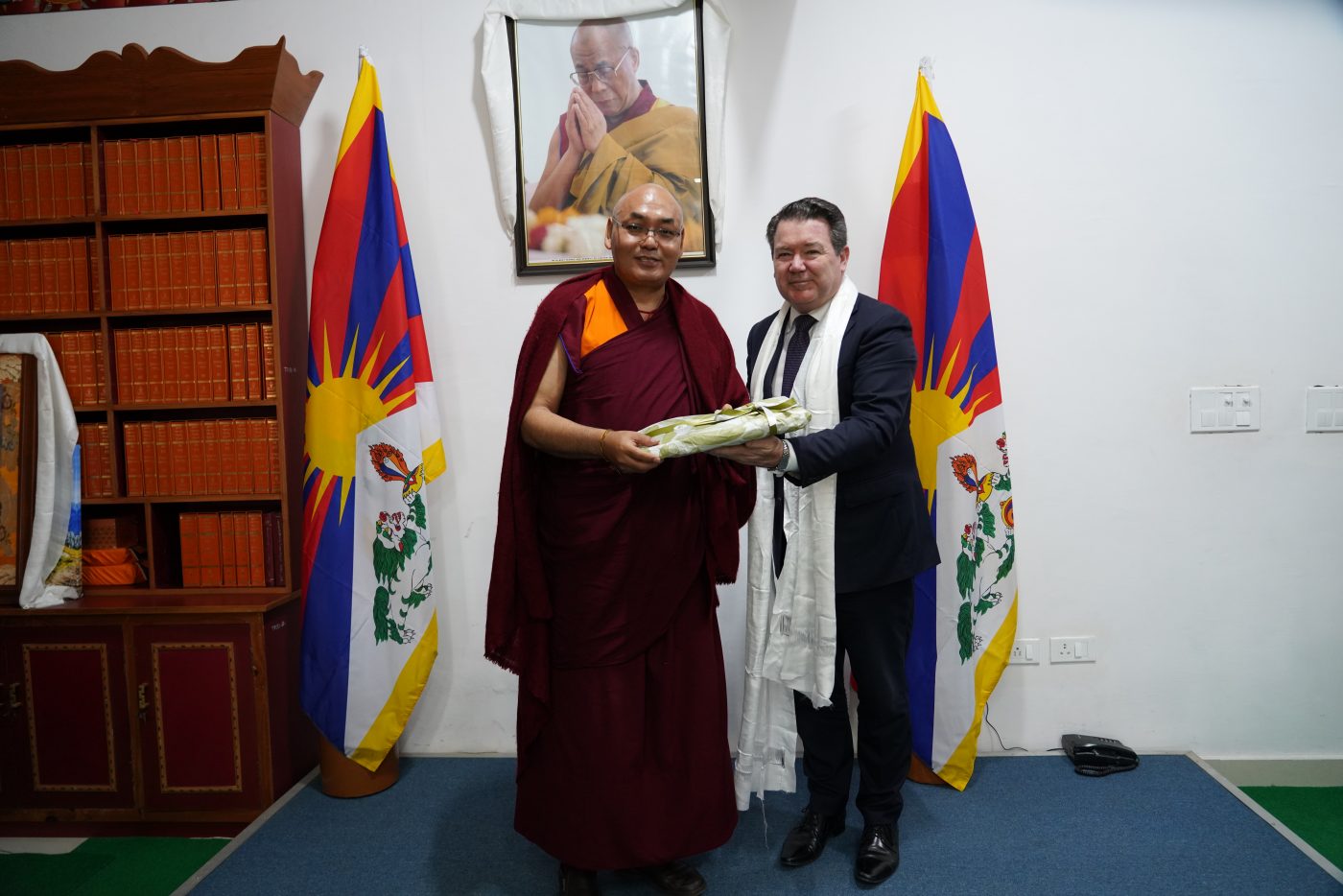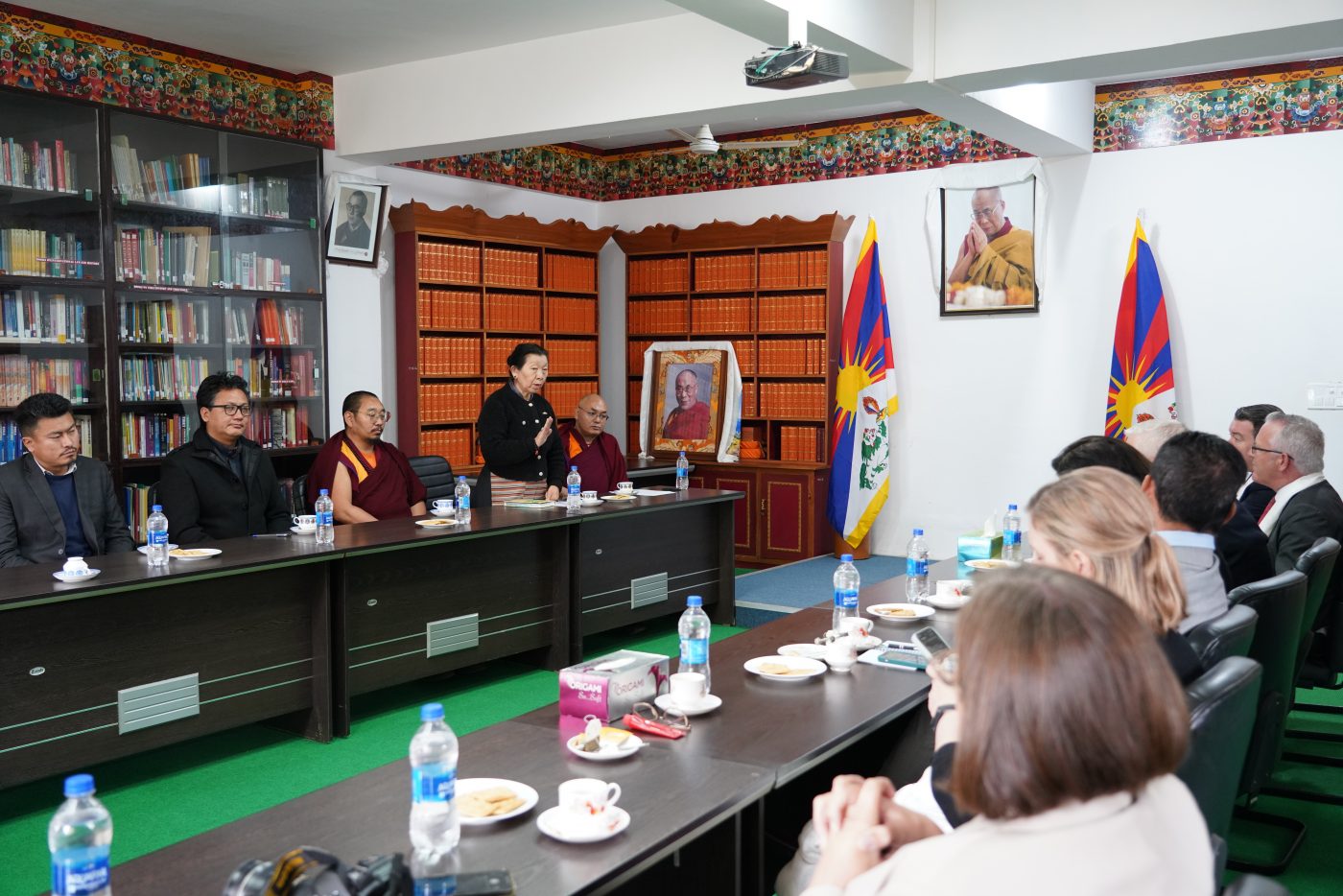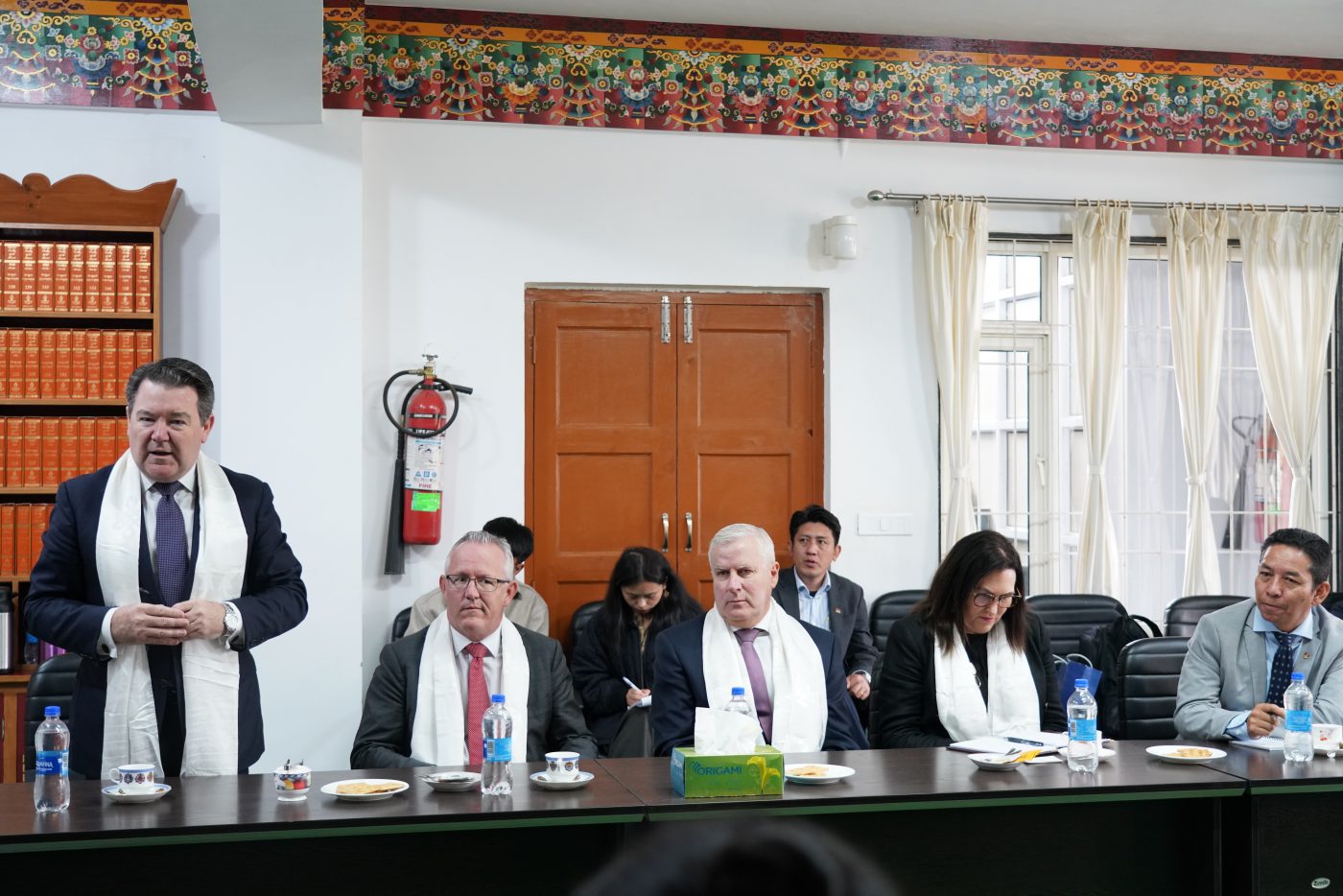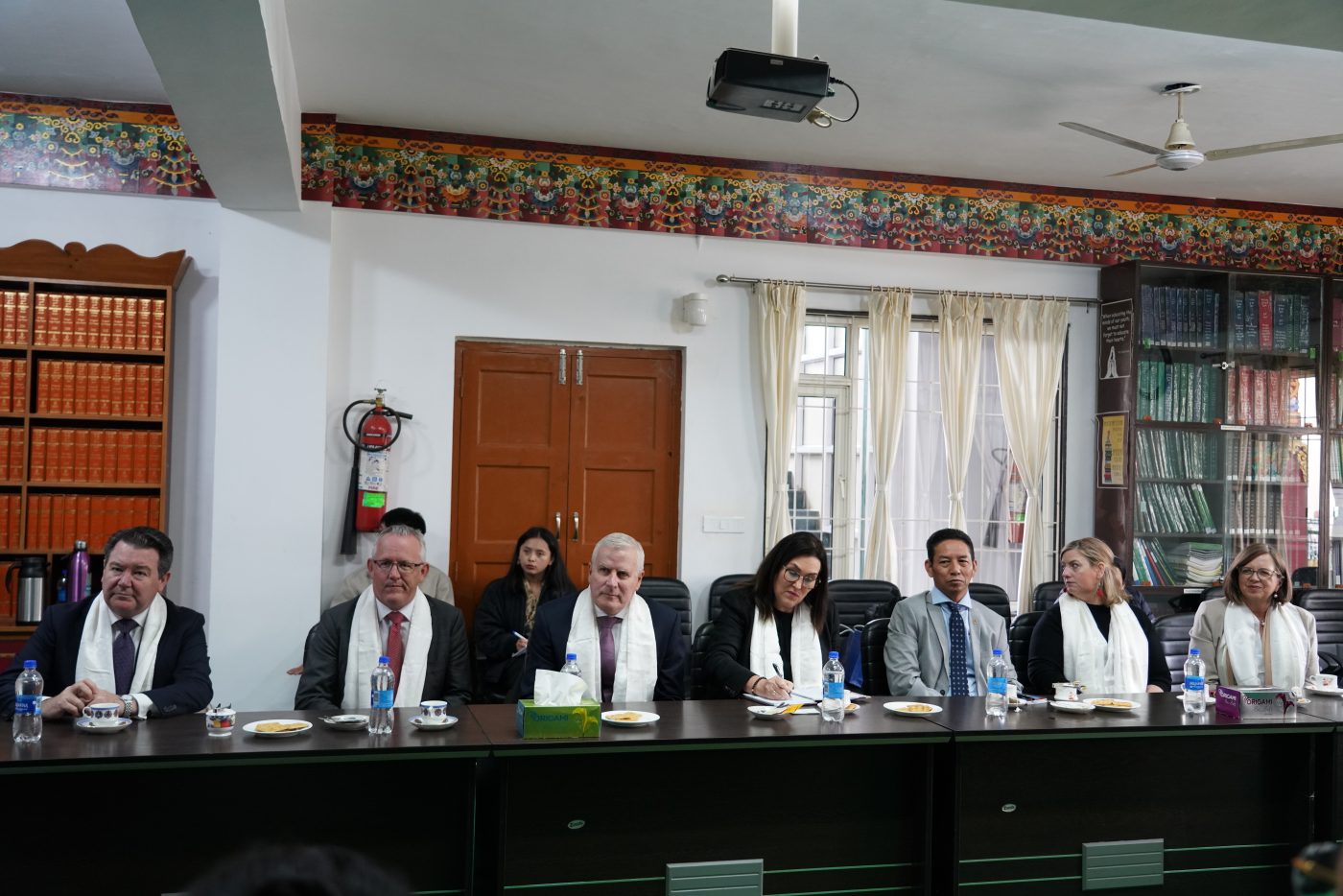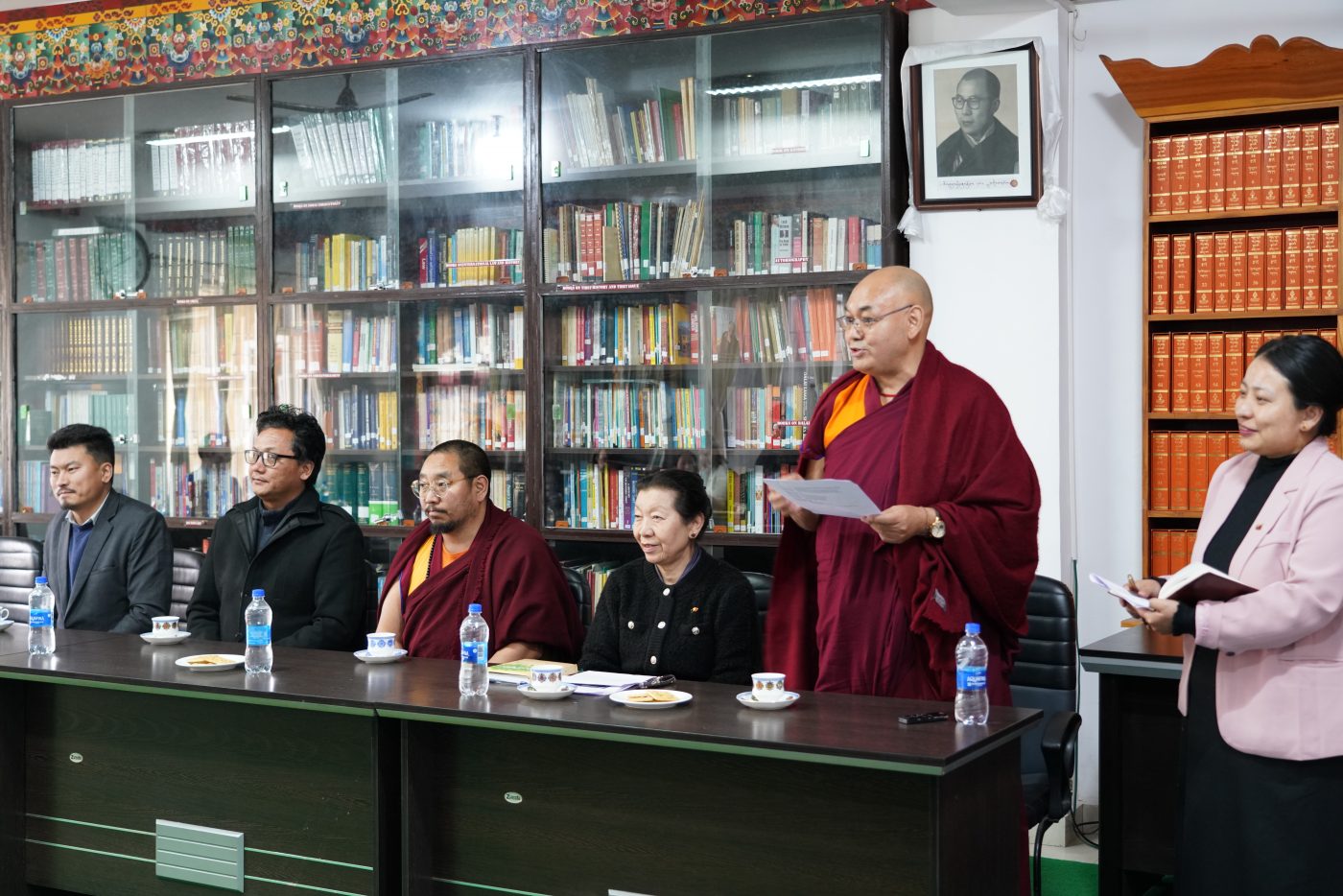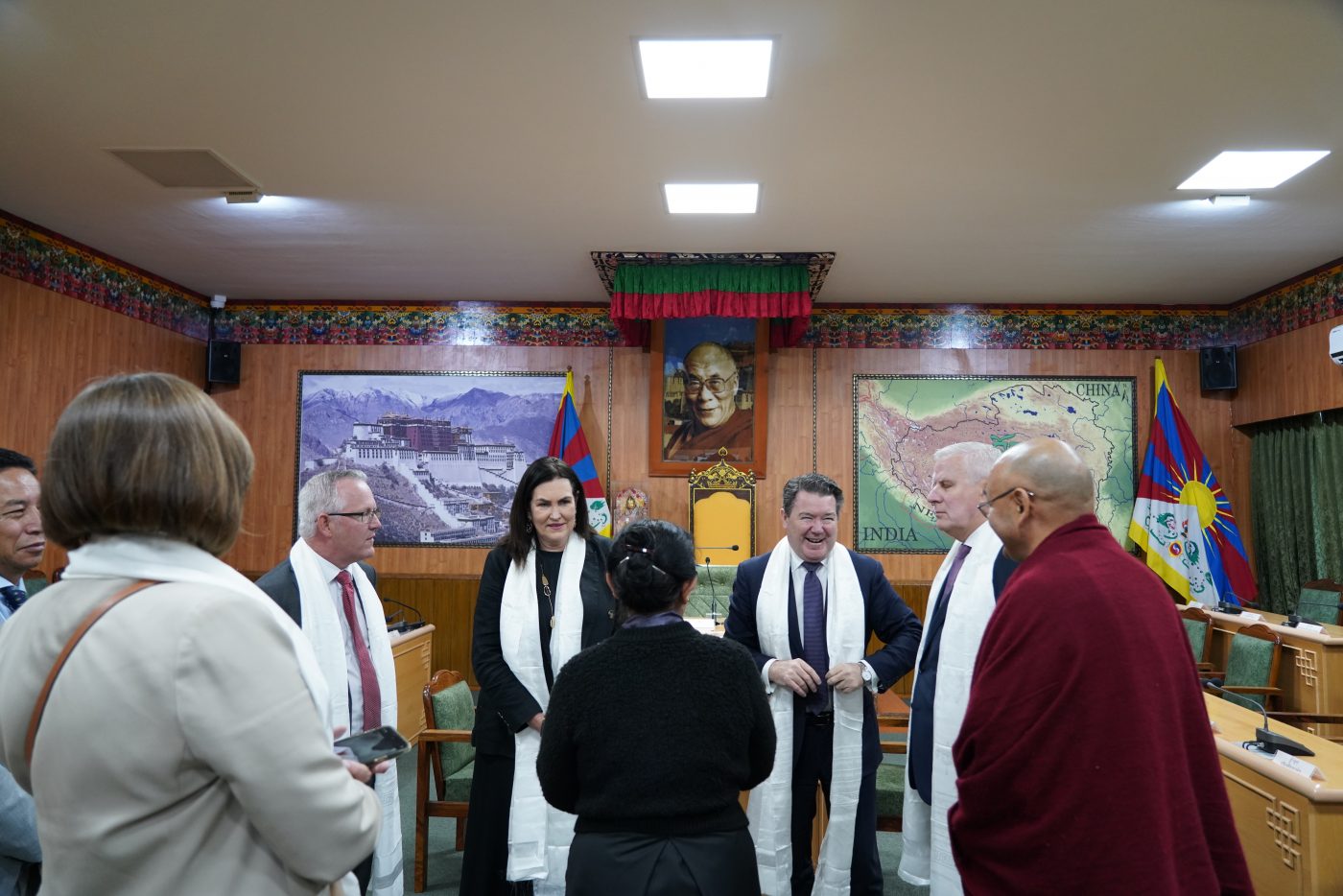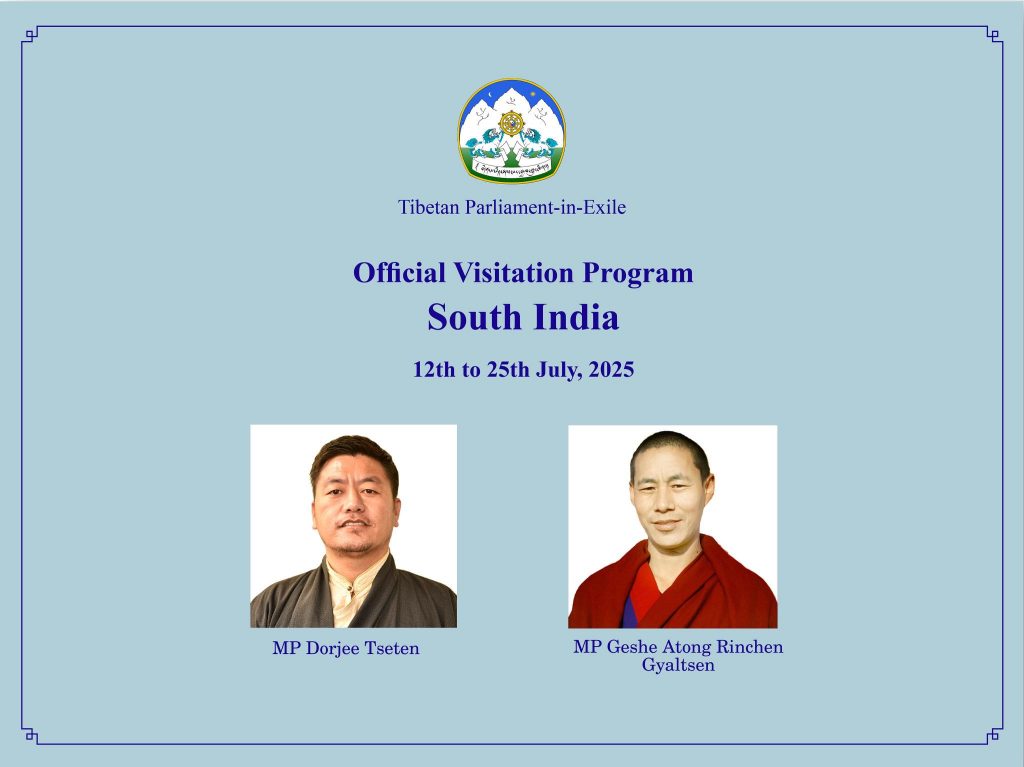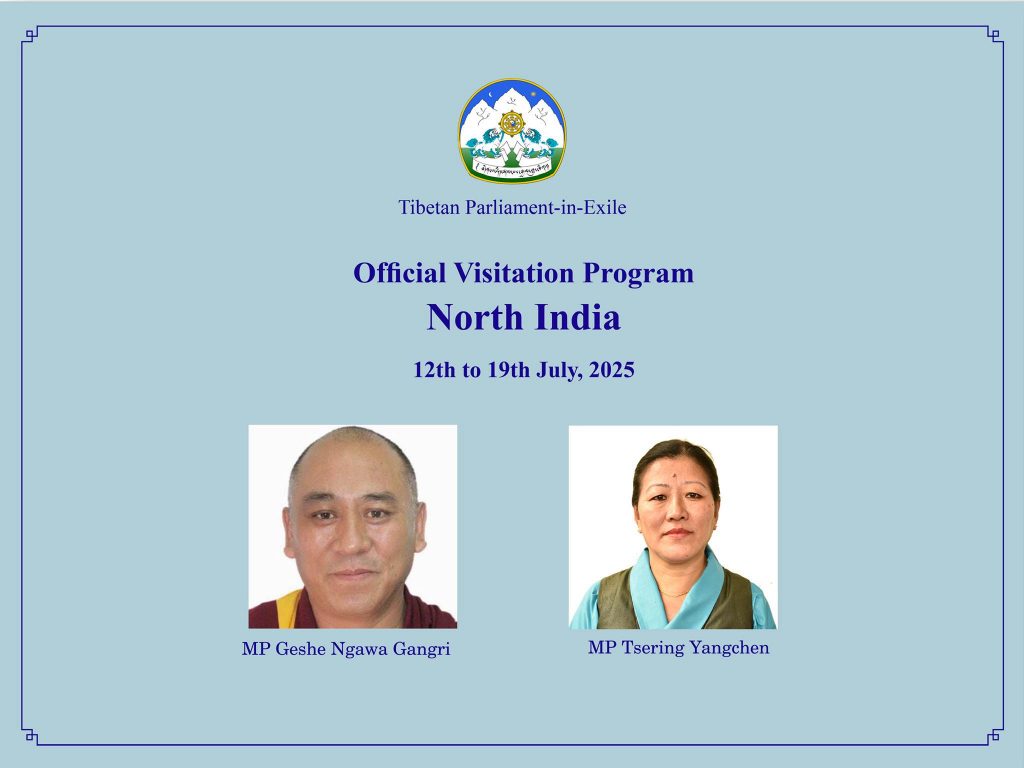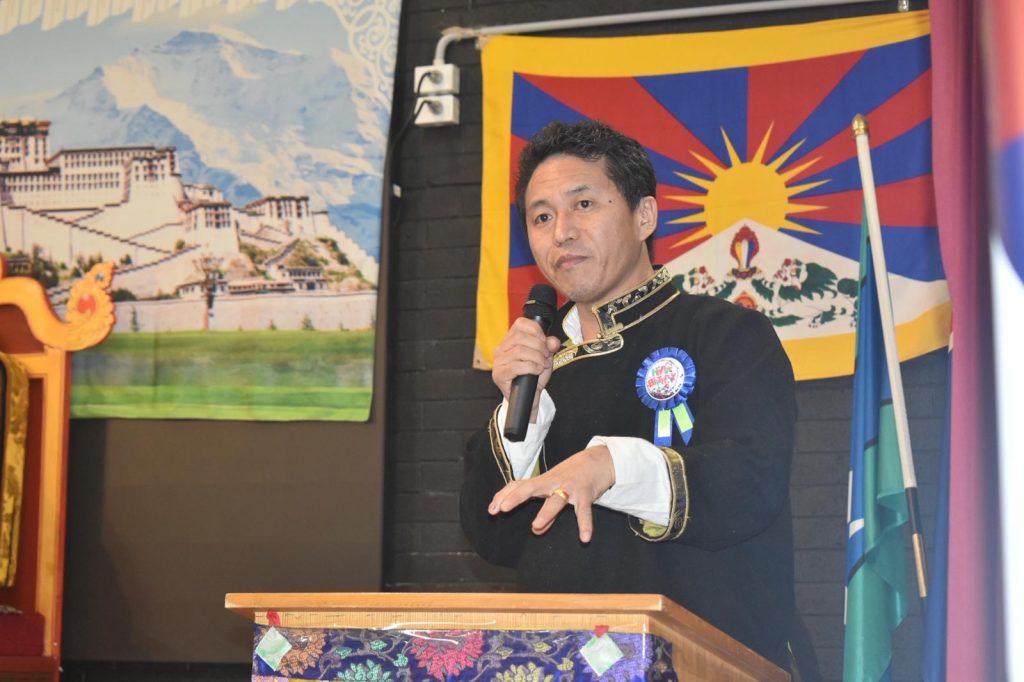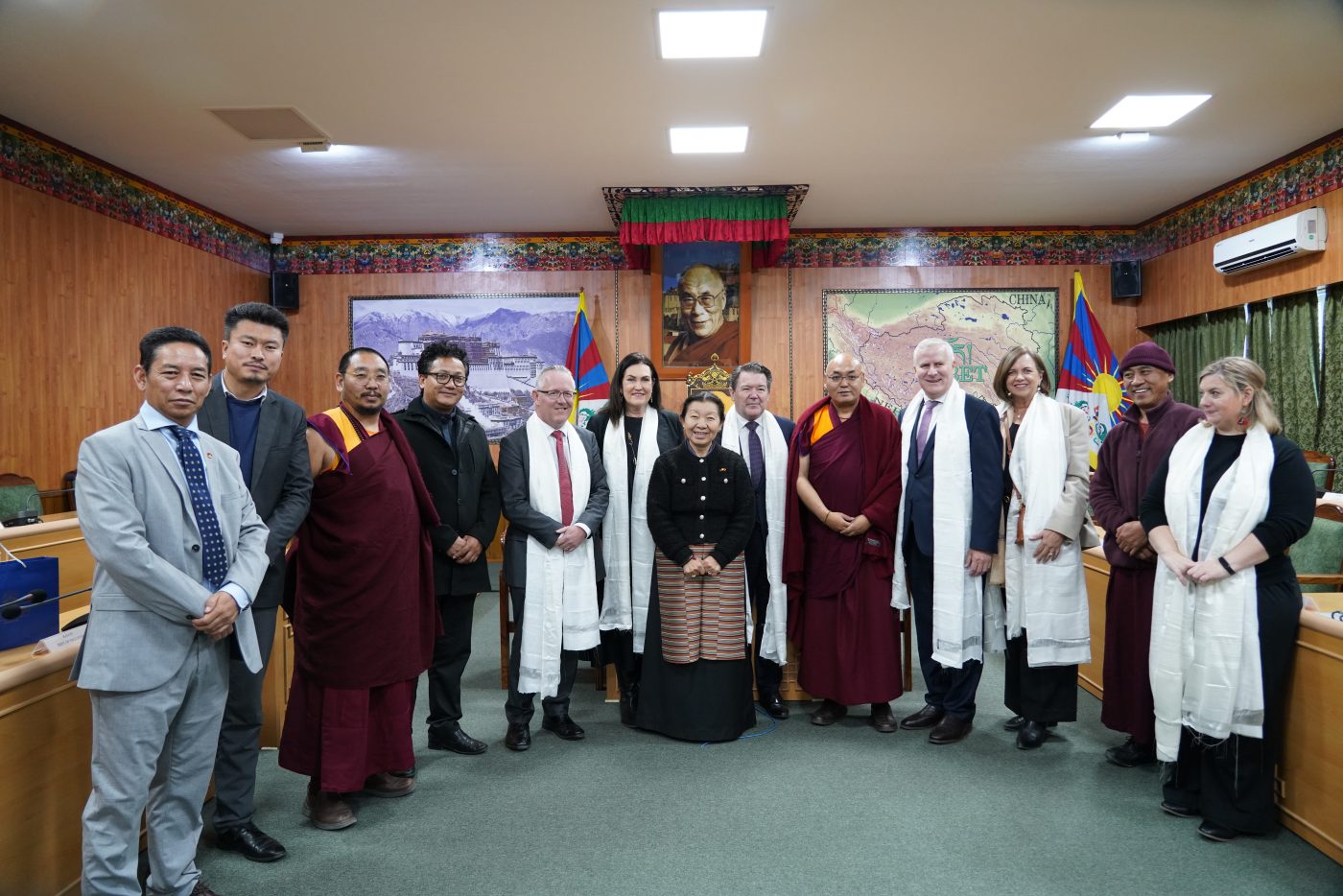
Dharamshala: A parliamentary delegation of Australia – Senator Dean Smith, Co-Chair of the Australian All Party Parliamentary Group for Tibet (Liberal Party); MP Michael McCormack, former Australian Deputy Prime Minister (National Party); Senator Deborah O’Neill; and MP David Smith (Labor Party), accompanied by Catherine McCormack (wife of MP McCormack), Representative Karma Singey, OoT, Canberra, and Zoe Bedford, Executive Officer at Australia Tibet Council visited the Tibetan Parliament-in-Exile on 11th March 2024.
The delegation was taken on a tour of the parliament hall and was briefed on the evolution, composition, and functioning of the Tibetan Parliament-in-Exile by the Deputy Speaker. They had an extensive discussion with Speaker Khenpo Sonam Tenphel, Deputy Speaker Dolma Tsering Teykhang, and members of the Standing Committee at the Standing Committee’s hall.
Extending his warm greetings, the Speaker welcomed all the members of the delegation from Australia and spoke about His Holiness the Dalai Lama’s past visits to Australia and his meetings with leaders, scholars, and public there.
He highlighted the critical situation in Tibet including the crackdown on over 1000 of Tibetan protesting against the construction of a dam that would displace villages and monasteries housing centuries-old murals and relics. And also spoke about the change in the political status in China, which he said, is inevitable as an individual is holding the authority to rule the entire nation.
The Speaker thanked the delegates for their support to the just cause of Tibet and especially extended his gratitude to the Australian government and people for rehabilitating many former Tibetan political prisoners in Australia.
The interaction continued with Senators and MPs from three different political parties of Australia expressing their appreciation and honour to have the chance to visit Dharamshala and attend the official commemoration of 65th Tibetan uprising day. He shared that Australia has taken the cause of Tibet to the UN as a part of the human rights council’s universal periodic review.
They also acknowledged His Holiness the Dalai Lama’s bestowment of democracy upon the people of Tibet and instilling the spirit of democracy among them, shared amazement at the sacrifices made by the Tibetans, and assured their solidarity and support with the Tibetans.
To the inquiries made by the delegation, the Deputy Speaker elucidated on the composition, election, functioning, and evolution of the Tibetan Parliament-in-Exile while also briefing the unicameral nature and party-less system of the Tibetan Parliament-in-Exile.
The Deputy Speaker further explained how Tibet is dissected into different parts and merged with Chinese counties and how China is sinicizing Tibet and its distinct culture, religion, and language, especially emphasizing that China is sinicizing the name ‘Tibet’ to ‘Xizang’.
Stressing on the need to make China accountable for its wrong doings in Tibet, the Deputy Speaker highlighted that the delegation’s visit to Dharamshala sends a big message to China that Tibet is not to the bullying of China.
Speaking on the colonial boarding schools, she explained that separating Tibetan children from their parents and cultural heritage is causing psychological impact on Tibetan children in addition to depriving them the opportunity to learn their own culture, language, and religion.
Calling for a need for scientific research on the deteriorating Tibet’s environment, the Deputy Speaker spoke about the unbridled exploitation of the Tibetan plateau and extended her gratitude to the Australian government and people for rehabilitating a number of former Tibetan political prisoners in Australia.
The Tibetan Parliament-in-Exile hosted a dinner in honor of the visiting parliamentary delegation of Australia.
